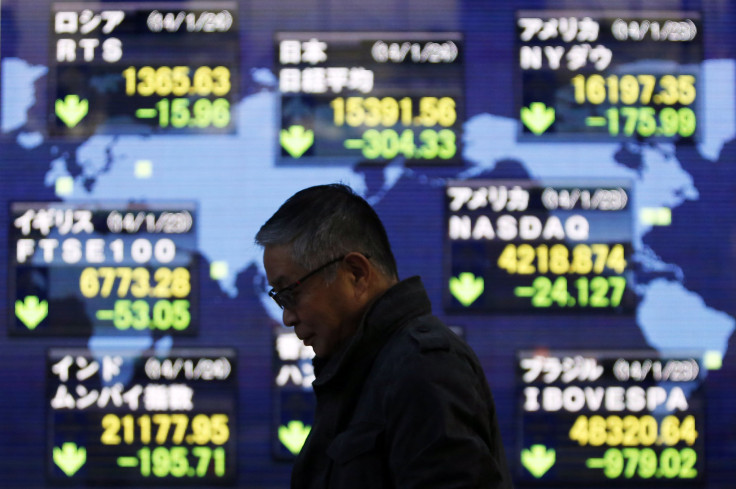Asia Shares Stumble As Weak China Trade Stokes Growth Worries

(Reuters) - Asian shares wobbled on Monday after dismal Chinese trade data eclipsed a strong U.S. jobs report, raising concerns about a deepening slowdown in the world's second-largest economy and sending the Australian dollar sliding.
MSCI's broadest index of Asia-Pacific shares outside Japan slipped 0.8 percent while U.S. stock futures also shed 0.4 percent. Japan's Nikkei share average bucked the trend and rose 0.2 percent on the back of a weaker yen.
Data published on Sunday showed China's trade performance slumped in January, with exports falling 3.3 percent from year-ago levels while imports tumbled 19.9 percent, far worse than analysts had expected. The data highlighted deepening weakness in the Chinese economy.
"The data shows that an economic slowdown is becoming a reality. If the government brings down its growth target next month, the markets will take it even more seriously," said Shuji Shirota, head of macro strategy at HSBC in Tokyo.
The Australian dollar, often used as a proxy for bets on the Chinese economy because of the country's trade links to China, fell 0.4 percent in early trade to $0.7775.
The poor China trade figures took some of the shine off robust U.S. payroll gains of 257,000 in January. Hourly wages also rebounded, increasing 12 cents last month for a 2.2 percent increase from a year earlier, the largest such gain since August.
As the data put a mid-year rate hike from the Federal Reserve back on the table, U.S. debt yields shot up, with the benchmark 10-year yield hitting a four-week high of 1.965 percent on Friday.
Money market futures have fully priced in a rate increase by September with some chance of a move as early as June.
The prospect of an earlier U.S. rate hike is weighing on many assets that have benefited from low interest rates in the United States while underpinning the dollar.
The U.S. dollar's index against a basket of six major currencies maintained most of its 1.1 percent gain on Friday and stood at 94.519, not far from an 11-year high of 95.481 hit last month.
The euro remained vulnerable as new Greek leader Alexis Tsipras rejected the bailout, setting himself on a collision course with European partners.
In his first major speech to parliament since storming to power last month on Sunday, Tsipras listed a range of proposed reverses of reforms imposed by European and International Monetary Fund lenders.
The euro traded at $1.1325, little changed but near last week's low of $1.1280.
The yen hit four-week lows of 119.23 to the dollar on Friday on the back of rising U.S. bond yields. It last stood at 118.73.
Oil prices steadied on Monday as falling U.S. oil rig counts and conflict in producer Libya were balanced by a slump in Chinese imports, which pointed to lower fuel demand in the world's biggest energy consumer.
Brent oil futures gained 0.9 percent to $58.33 per barrel, clinging near six-week high of $59.06 touched on Friday.
Gold rebounded slightly from a three-week low of $1,228.50 touched on Friday as share prices eased. It last stood at $1,213.80 per ounce.
© Copyright IBTimes 2024. All rights reserved.











